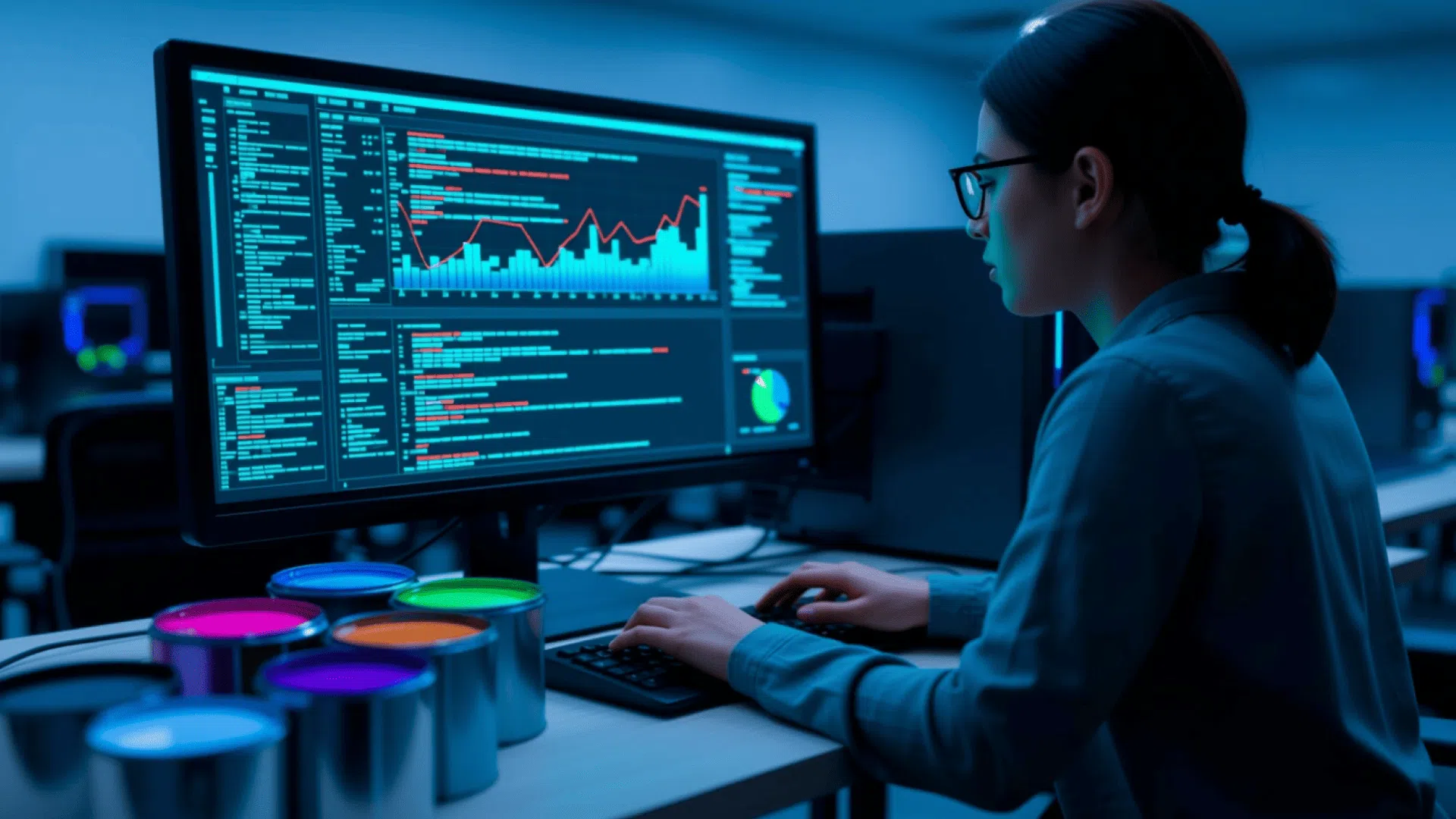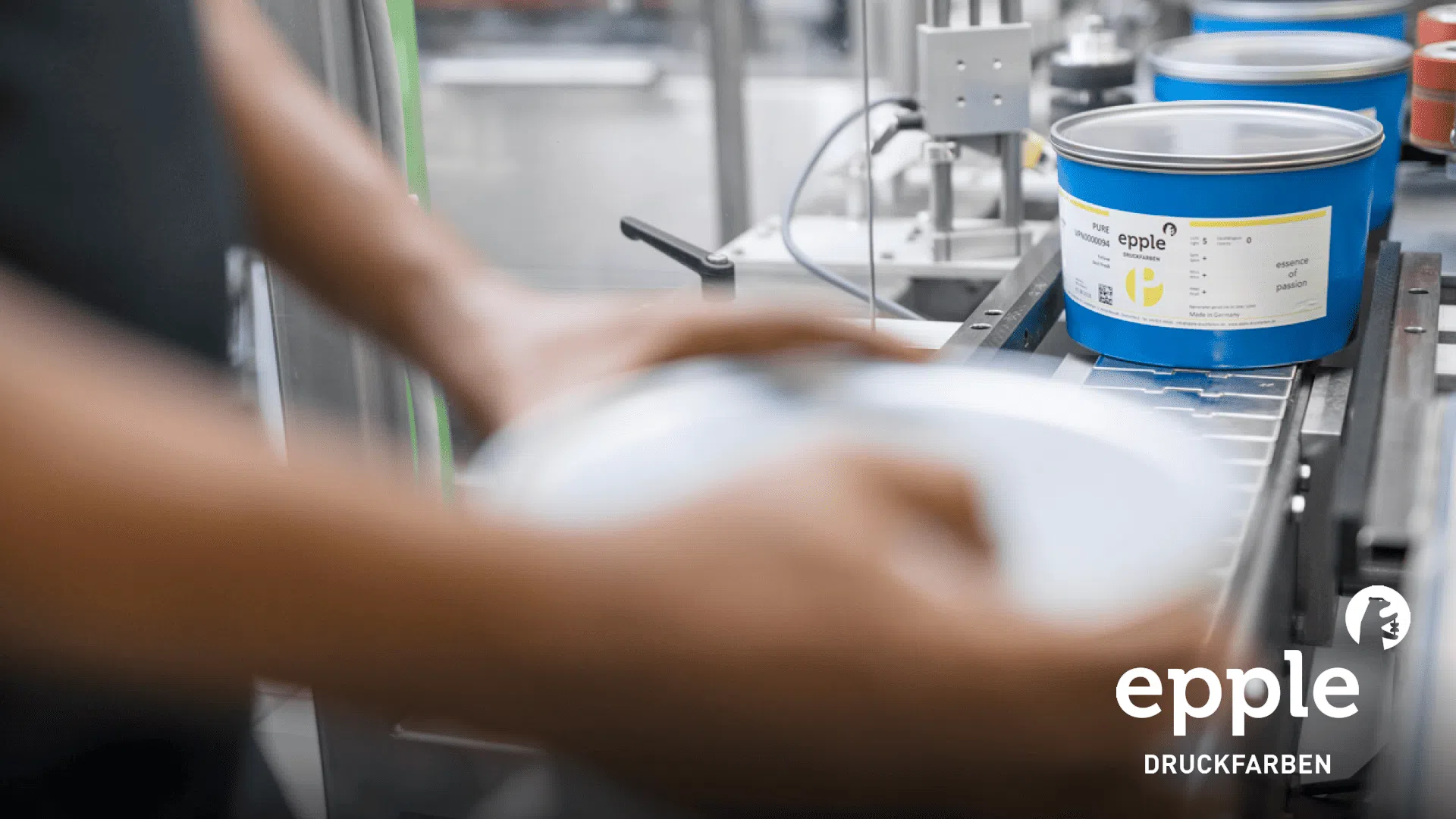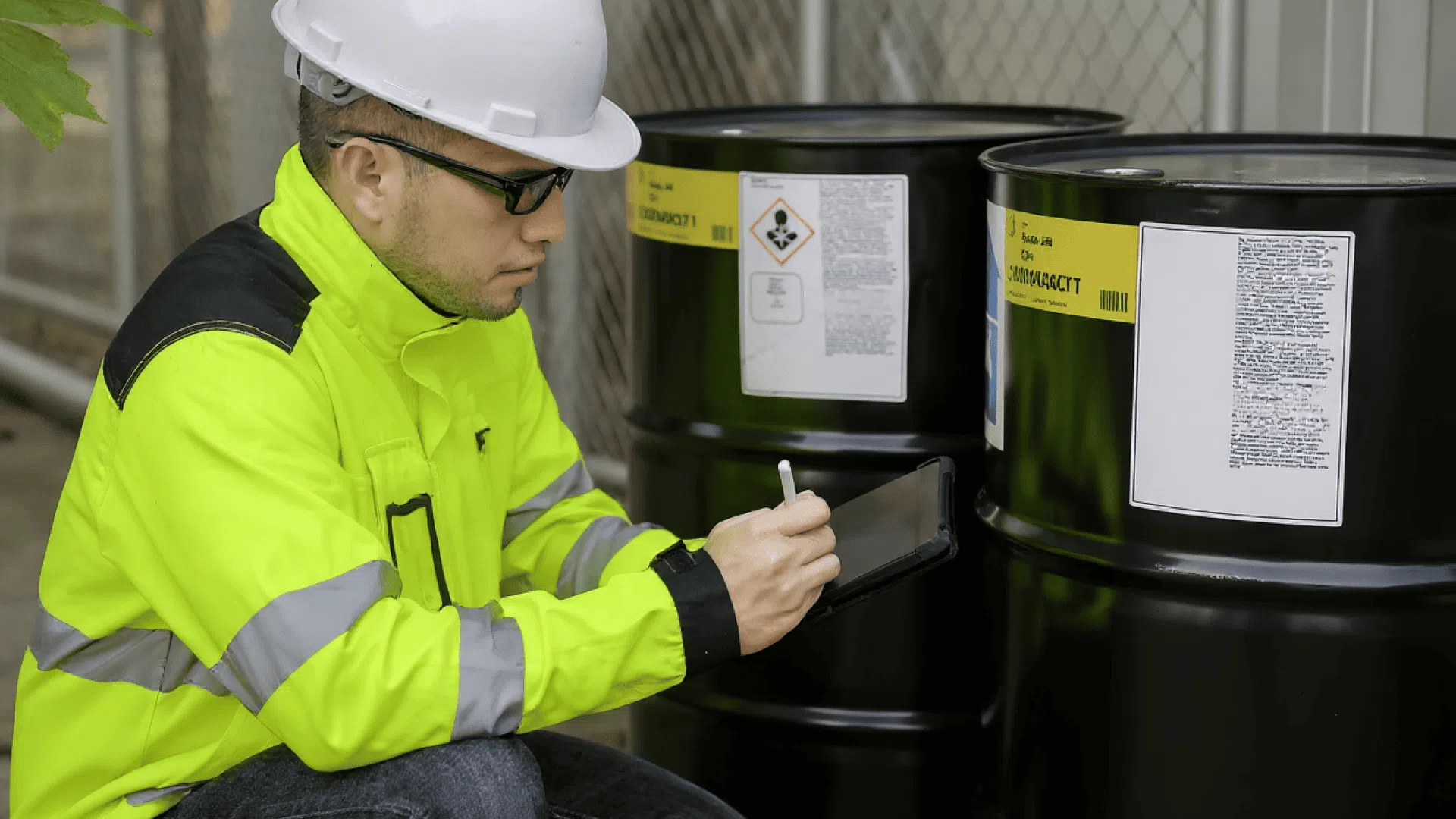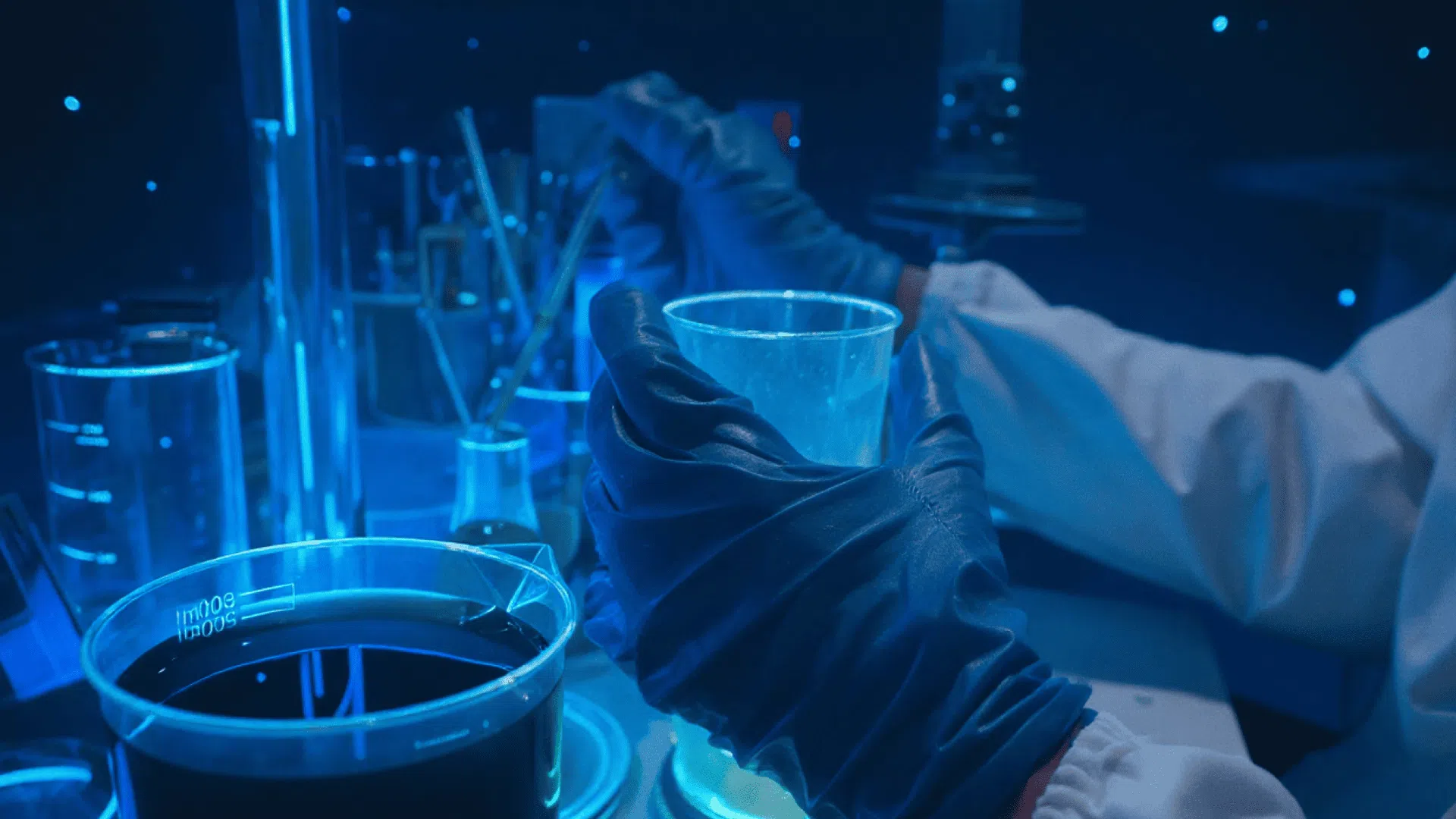Epple Druckfarben AG enhances efficiency and overcomes industry-specific challenges using Yaveon solutions.

Summary: Companies in the chemical industry are increasingly facing the challenges of digitalization—driven in particular by external factors such as the COVID-19 pandemic and geopolitical developments. To counter slowing growth, many are turning to digital solutions like software, robotics, and digital twins. These technologies streamline processes and are further enhanced through the concepts of Industry 4.0 and 5.0. Introducing such innovations is now seen as essential for adapting successfully to changing conditions.
Digitalization is one of the most exciting – and most demanding – drivers of business development today. The chemical industry is no exception. Since the COVID-19 pandemic, the need for digital solutions has changed dramatically. Add external influences such as geopolitical uncertainty or high inflation, and established business processes are under even greater pressure.
The consequences are clear: growth slows, margins shrink. Triggered by these developments, chemical companies recognize the importance of digital options – and many have already taken action.
Software, robotics, digital twins – the chemical industry is moving steadily toward digitalization. Yet these are only a few examples of how innovation is advancing the sector. The potential goes much further. Which digital tools are already in use? And where do untapped opportunities still lie?
Industry 4.0 is no longer new – it has long proven its value in everyday business. At its core, it describes the use of automation and technologies designed to make daily operations easier. Industry 5.0 takes things a step further: building on the foundation of Industry 4.0, it emphasizes seamless collaboration between people and machines. Advanced technologies, artificial intelligence, and robotics empower companies to boost efficiency and meet the challenges of tomorrow.
The same applies to the chemical industry. Where once digitalized and automated processes were the focus, AI technologies and robotics are now increasingly part of everyday operations – and their importance is only growing. Is Chemistry 4.0 therefore evolving into Chemistry 5.0? A clear trend is emerging: new mechanisms are becoming firmly integrated into working life. From digital twins to AI to predictive maintenance – let’s explore which technologies are especially valuable for the chemical industry.
Research and development is a crucial area for chemical companies—making it all the more important to accelerate digital transformation here. Across the industry, we see a variety of applications already in use:
A digital twin is the virtual representation of a process or product. It creates a link to the physical world and is typically made up of models, simulations, and algorithms. For the chemical industry, this means: by replicating real-world conditions and their effects, digital twins make it easier to identify changes in physical objects. Compared to testing directly on real assets, they save both time and budget. They also reduce the financial risks that arise when physical trials head in the wrong direction. Especially in R&D, digital twins are a powerful tool to boost project profitability.
Research and development in the chemical industry is subject to strict regulations. Companies are required to document a wide range of processes and data in detail. On paper, this is not only time-consuming but also highly error-prone. A miswritten value can quickly lead to misinterpretation by colleagues. Paper also takes up significant space—offices and archives soon overflow with files. To meet documentation requirements more efficiently, many chemical companies are turning to digital solutions such as document management systems. These make it possible to organize the vast amount of records and information generated during research digitally and securely.
Developing a new product typically involves multiple departments and stakeholders. In larger companies, these teams are often spread across different locations. Digital transformation helps streamline R&D by connecting data access and enabling virtual collaboration across departments and sites.
The volume of data that needs to be processed continues to grow—Big Data is the keyword. Meaningful analysis is only possible with the help of digital tools, which is why chemical companies are increasingly relying on digital solutions. The result: a strong foundation for developing innovative products with precision and focus.
Artificial intelligence was already established in many fields long before the rise of ChatGPT. Now, with its widespread availability, AI has become accessible to everyone. In chemical R&D, AI unlocks huge potential: it enables automated analyses and interpretations of experimental data, accelerating discovery and innovation.
As a subfield of AI, machine learning applications are capable of both processing predefined tasks and learning new ones. With this capability, they support R&D by, for example, generating suggestions for new formulations or recipes.
The Internet of Things connects the digital with the physical world. A well-known consumer example is a smart fridge that detects when the milk is empty and automatically orders a new carton online. In chemical R&D, IoT plays a similar role: it allows changes in physical objects to be detected and reported digitally, opening up new possibilities for monitoring and optimization.
Digitalization holds enormous potential for research and development. But it doesn’t stop there – in the next step, production – the chemical industry is increasingly relying on digital tools. The keyword is automation: it enables efficiencies and ease of work that were previously unthinkable.
The (probably) biggest obstacle to smooth production? Machine downtime. Predictive maintenance tools help prevent exactly that. They detect early deviations and flag them before failure occurs. This gives companies time to act, keeping production running without interruption.
Whether it’s an issue identified early or a machine already at a standstill – in the chemical industry, operations need to run smoothly. Augmented reality offers location-independent, straightforward maintenance and rapid troubleshooting. In many cases, the expert doesn’t even need to be on-site. The bottom line: maintenance and servicing become simpler, faster, and more efficient with augmented reality.
Safe chemical products require precise compositions of raw materials. Digitalization has the answer here too: real-time monitoring of chemical compositions in goods, blends, and finished products. This makes production easier, and deviations can be corrected immediately.
Robots are perfectly suited for repetitive tasks. That’s a double advantage: employees free up time for higher-value work, and human error is reduced. Automated processes run consistently – with fewer errors as the outcome.
The supply chain accompanies every manufacturing business – and the chemical industry is no exception. Here too, digitalization opens up enormous opportunities that many companies are already embracing. Typical examples include:
From goods receipt through production to delivery to the customer: the status of goods and their components should always be visible. That way, companies can answer inquiries, ensure smooth production, and guarantee top quality. Thanks to digital real-time tracking, companies gain precise insights into the current state of their supply chain. With just a few clicks, they know where an item is located, which production stage it has reached, or how shipping is progressing.
The scenario to avoid at all costs: a recall. If one becomes necessary, speed is everything. Assigning product elements manually is time-consuming. With digital tracking, traceability becomes effortless – because all relevant data is stored in the system and available at a click.
Digitalization makes everyday work in the chemical industry easier – but it also comes with challenges. Data protection and digital security are hot topics. Concerns about unauthorized access to sensitive information often spark debate. The reason: cloud solutions. But are these worries justified? Not if you choose the right solution.
Reputable providers invest heavily in cloud security. When selecting a system, it’s worth digging deeper: What measures are in place? Does the provider have sufficient experience? Are there positive references? Questions like these make it easier to find a solution that meets the high safety standards of the chemical industry.
Equally important: the safe handling of chemical materials. Hazardous substance management is crucial – and inseparable from digitalization. The right ERP system ensures compliant and reliable handling of sensitive substances. But not every solution offers this functionality. That’s why careful system selection is key.
The current state of play is clear: digitalization has arrived in the chemical industry and is already widely applied. But what comes next? No one can predict the future with certainty. Still, the signs are clear: digital solutions will only grow more important. Companies that avoid digitalization today are already falling behind. In the long run, those who cling to analog processes will be overtaken.
The best foundation for meeting opportunities and challenges with confidence is software – and in most cases, Enterprise Resource Planning solutions. Why? Because ERP systems don’t just cover a wide range of functions; they support the entire flow of goods and values across the business.
Even better: ERP provides the perfect base for industry-specific enhancements. Tailored functionalities transform a strong standard into an unbeatable specialist solution. And where will digitalization – especially with artificial intelligence – take us next? We can only guess. One thing, however, is certain: the right solutions will turn the potential of new technologies into tangible benefits.
 Success story: Epple Druckfarben – Beitrag öffnen
Success story: Epple Druckfarben – Beitrag öffnen
Epple Druckfarben AG enhances efficiency and overcomes industry-specific challenges using Yaveon solutions.
 How to manage hazardous substances safely – Beitrag öffnen
How to manage hazardous substances safely – Beitrag öffnen
How modern ERP systems make hazardous substance management efficient and easy to handle.
 Recipes & characteristics in chemical production – Beitrag öffnen
Recipes & characteristics in chemical production – Beitrag öffnen
Future-proof chemical production: precise recipes, controlled characteristics, version control, and seamless lot tracking.